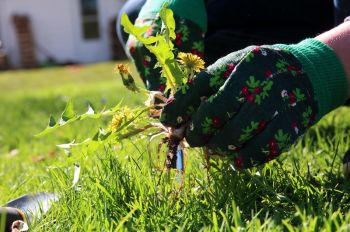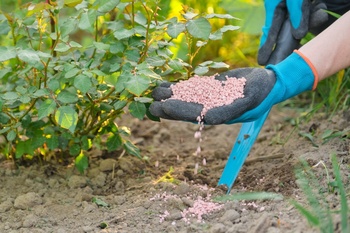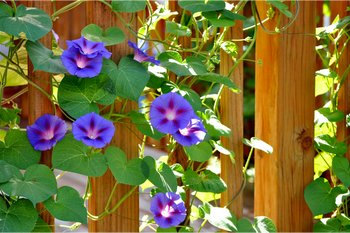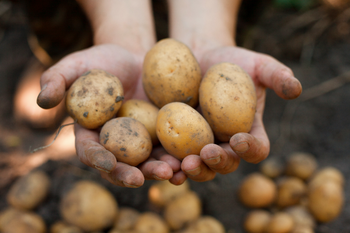
Sooner or later, every gardener has to get to grips with weeds. Sometimes called ‘plants in the wrong place’, weeds tend to turn up just where we don’t want them in our gardens. They compete with plants for water and nutrients, and can quickly spread and take over in a garden. While it’s never going to be possible to eradicate weeds, there are steps you can take to get them under control, and the first step is to understand how weeds grow.
What is an annual weed?
Annual weeds germinate from seed, grow, flower, set seed, and die all within one year. Because annual plants grow so fast, they can often produce several generations within one year, so it’s vital to deal with them quickly to stop them from spreading. Common annual weeds include:
- Chickweed
- Hairy bittercress
- Petty spurge
- Cleavers
- Herb robert
What is a perennial weed?
Perennial weeds die back in winter and reappear in spring using food stored in their roots. As well as spreading by seed, some, like bindweed and enchanter’s nightshade, spread by underground rhizomes (stems). Others, like dandelions and green alkanet, have deep roots that are very hard to dig up, and can regrow from any scrap of heart left in the ground. In short, perennial weeds are a problem! Common perennial plants include:
- Oxalis (wood sorrel)
- Dandelion
- Bindweed
- Bramble
- Couch grass
- Ground elder
- Horsetail
- Dock
- Green alkanet
- Nettles
- Enchanter’s nightshade
How to tackle annual weeds
Because annual weeds have such a short lifespan, they don’t develop deep root systems. Annual plants staying on the surface is good news, as it means they’re easy to pull up by the roots. They also can’t grow back if cut off at the root level. The key to tackling annual weeds is to get in early before they set seed. If you’re grabbing a small area, pull up the weeds by hand, using a hand fork to loosen the roots if necessary. For large areas, use a hoe to cut the plants off at ground level. You can add annual weeds to your compost heap.
How to tackle perennial weeds
Digging up perennial plants can feel pointless as they will regrow from any bit of root left in the ground, but it’s still worth doing, as it will eventually exhaust the food stores in their roots.
Domestic compost heaps don’t get hot enough to kill the roots of perennial weeds, so dispose of these separately – some local councils take perennial weeds in their green waste collections, but check with yours first.
Whatever you need to get your garden looking tip-top, we’ve got it in stock. Contact us now for help and advice on all your garden queries.




